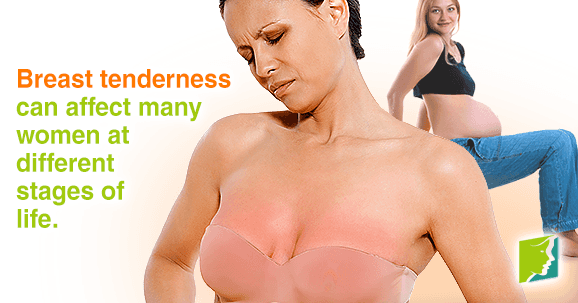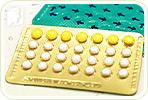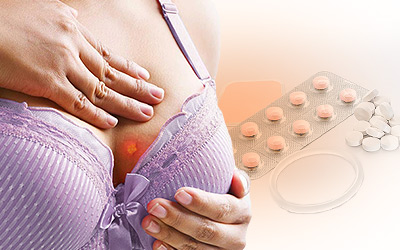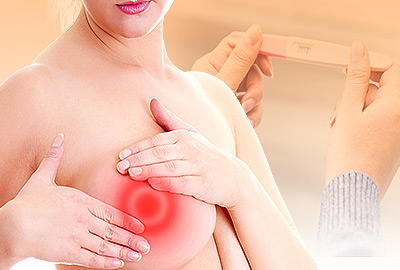Breast tenderness refers to any feelings of discomfort or soreness felt in one or both breasts. The symptom affects around 70% of women during menopause, making it one of the most common complaints. During menopause the leading cause of breast tenderness is hormonal fluctuations, specifically of the sex hormones estrogen, progesterone, and testosterone. These fluctuations cause inflammation of the breast tissue, which triggers soreness. Breast tenderness can include anything from sensitivity to sharp or dull aches. Keep reading to learn more about breast tenderness.
Causes
There are two types of breast pain: cyclical and non-cyclical breast pain.
- Cyclical breast pain. This is the most commonly experienced cause as it is recurrent and directly linked to hormone fluctuation. This means it's especially commonplace during menstruation, pregnancy, and menopause.
- Non-cyclical breast pain. This is not hormone related and is typically caused by medical factors, like previous breast surgery or breast cysts. It is most common in premenopausal and perimenopausal women.
Certain medications like oral contraceptives and antidepressants have been known to cause breast tenderness. Lifestyle factors such as poor diet, high stress, and inadequate exercise may also contribute to breast tenderness.
Signs
Breast tenderness can be a sign of other things going on in your body. For example, it can indicate that your period is about to start, that you are pregnant, or that you are beginning the transition into menopause.
If breast tenderness is accompanied by other symptoms like discharge from the nipple, new lumps, or concentrated pain that lasts more than a few hours, you should talk to a doctor and schedule a breast exam as soon as possible.
Treatments for Breast Pain
There are several treatment options available for easing breast tenderness, including making simple lifestyle changes or trying herbal remedies.
Lifestyle changes
Exercising regularly, getting plenty of sleep, and maintaining a healthy diet are all simple lifestyle changes you can make to help prevent and reduce breast tenderness. The recommended amount of exercise is at least 30 minutes a day. Walking, swimming, biking, and yoga are all great methods of low impact exercise that can help ease pain, boost energy levels, and reduce stress. Be sure to wear a supportive sports bra when you exercise to prevent movement-induced tenderness.
Herbal remedies
Herbal remedies are a low-risk and natural way to help restore hormonal balance and ease breast pain. Black cohosh and soy are popular herbs among menopausal women because they contain phytoestrogenic, which help restore decreased estrogen in the body.
Breast tenderness is a common symptom of menopause, to the point that it affects nearly two-thirds of women. The experience is primarily caused by hormonal fluctuations, and varies from women to women, depending on genetics and lifestyle. There are several ways of managing breast tenderness, including maintaining a healthy diet and getting regular exercise.
Sources
- McCoy, K. (2013). Mastalgia. Retrieved August 21, 2014, from http://www.med.nyu.edu/content?ChunkIID=223382
- National Health Service UK. (2014). Breast pain. Retrieved August 21, 2014, from http://www.nhs.uk/conditions/breastpaincyclical/pages/introduction.aspx
- University of Maryland Medical Center. (2014). Breast pain. Retrieved August 21, 2014, from http://umm.edu/health/medical/ency/articles/breast-pain




